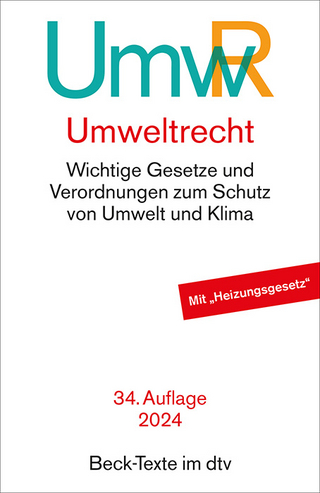
Use of Economic Instruments in Water Policy
Springer International Publishing (Verlag)
978-3-319-18286-5 (ISBN)
This book assesses both the effectiveness and efficiency of implemented Economic Policy Instruments (EPIs) in order to achieve water policy goals and identifies the preconditions under which they outperform alternative (e.g. regulatory) policy instruments and/or can complement them as part of complex policy mixes. The development of a consolidated assessment framework helps clarify (and where possible, quantify) the effectiveness of each EPI on the basis of different criteria. Outcome-oriented criteria describe how the EPIs perform. They include intended and unintended economic and environmental outcomes and the distribution of benefits and costs among the affected parties. These steps consider the application of cost effectiveness and cost benefits analysis, e.g. to assess ex-post performance of the EPI. Process criteria describe the institutional conditions (legislative, political, cultural, etc.) affecting the formation and operation of the EPI studied (particularly relevant for assessing the possible impacts of using economic instruments), the transaction costs involved in implementing and enforcing the instruments and the process of implementation.
Case studies from Cyprus, Denmark, France, Germany, Hungary, Italy, the Netherlands, Spain and the United Kingdom, as well as from Australia, Chile, Israel and the USA are presented in this book. A wide variety of EPIs are also covered, including water-pricing schemes (tariffs, environmental taxes, environmental charges or fees, subsidies on products and practices), trading schemes (tradable permits for abstraction and pollution) and cooperation mechanisms.1. Defining and assessing Economic Policy Instruments for sustainable water management.- 2. Water pricing and taxes: an introduction.- 3. Effluent Tax in Germany.- 4. The Water Load Fee of Hungary.- 5. Water Abstraction Charges and Compensation Payments in Baden-Württemberg (Germany).- 6. The Danish Pesticide Tax.- 7. Subsidies for drinking water conservation in Cyprus.- 8. Residential Water Pricing in Italy.- 9. Water tariffs in agriculture - Emilia Romagna case study.- 10. Corporatization and Price Setting in the Urban Water Sector under Statewide Central Administration: The Israeli Experience.- 11. Water Budget Rate Structure: Experiences from Several Urban Utilities in Southern California.- 12. Green energy certificates and compliance market.- 13. Subsidies for ecologically friendly hydropower plants through favourable electricity remuneration in Germany.- 14. Water trading: an introduction.- 15. Water Quality Trading in Ohio.- 16. Nitrogen Reduction in North Carolina.- 17. Evaluation of Salinity Offset Programs in Australia.- 18. Water Trading in the Tagus River Basin (Spain).- 19. Chilean Water Rights Markets as a Water Allocation Mechanism.- 20. Unbundling water rights as a means to improve water markets in Australia's Southern Connected Murray Darling Basin.- 21. The Development of An Efficient Water Market in Northern Colorado, USA.- 22. Other types of incentives in water policy: an introduction.- 23. Cooperative agreements between water supply companies and farmers in Dorset (E).- 24. Financial compensation for environmental services - the case of the Evian Natural Mineral Water (France).- 25. New York City's Watershed Agricultural Program.- 26. Voluntary Agreement for River Regime Restoration Services in the Ebro River Basin (Spain).- 27. Voluntary Agreements to Promote the Use of Reclaimed Water at Tordera River Basin.- 28. Key Conclusions and Methodological lessons from application of EPIs in addressing water policychallenges.
| Erscheint lt. Verlag | 30.9.2015 |
|---|---|
| Reihe/Serie | Global Issues in Water Policy |
| Zusatzinfo | XIV, 423 p. 46 illus., 42 illus. in color. |
| Verlagsort | Cham |
| Sprache | englisch |
| Maße | 155 x 235 mm |
| Themenwelt | Recht / Steuern ► Öffentliches Recht ► Umweltrecht |
| Schlagworte | Economic Policy Instruments • Effectiveness and Efficiency • ex-post Evaluation • Water Policy • Water Policy and Management • Water Resources Economics |
| ISBN-10 | 3-319-18286-2 / 3319182862 |
| ISBN-13 | 978-3-319-18286-5 / 9783319182865 |
| Zustand | Neuware |
| Haben Sie eine Frage zum Produkt? |
aus dem Bereich


